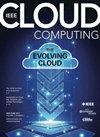联合还是分裂?混合分离和联邦学习体系结构的性能和隐私分析
Q1 Computer Science
引用次数: 19
摘要
手机、可穿戴设备和其他传感器每天都会产生大量的分布式敏感数据。经典的机器学习方法通常在一台机器上处理这些大型数据集,训练复杂的模型以获得有用的预测。为了更好地保护用户和数据隐私,同时保证高性能,最近提出了分布式机器学习技术,如Federated和Split learning。这两种分布式学习架构都有优点,但也有缺点。在这项工作中,我们分析了这种权衡,并提出了一种新的混合联邦分裂学习架构,以结合两者在效率和隐私方面的好处。我们的评估显示了联邦分割学习如何降低运行联邦学习的每个客户端所需的计算能力,并使分割学习并行化,同时在训练期间对不平衡数据集保持高预测精度。此外,与并行分割学习相比,FSL在特定的隐私方法中提供了更好的准确性和隐私权衡。本文章由计算机程序翻译,如有差异,请以英文原文为准。
Federated or Split? A Performance and Privacy Analysis of Hybrid Split and Federated Learning Architectures
Mobile phones, wearable devices, and other sensors produce every day a large amount of distributed and sensitive data. Classical machine learning approaches process these large datasets usually on a single machine, training complex models to obtain useful predictions. To better preserve user and data privacy and at the same time guarantee high performance, distributed machine learning techniques such as Federated and Split Learning have been recently proposed. Both of these distributed learning architectures have merits but also drawbacks. In this work, we analyze such tradeoffs and propose a new hybrid Federated Split Learning architecture, to combine the benefits of both in terms of efficiency and privacy. Our evaluation shows how Federated Split Learning may reduce the computational power required for each client running a Federated Learning and enable Split Learning parallelization while maintaining a high prediction accuracy with unbalanced datasets during training. Furthermore, FSL provides a better accuracy-privacy tradeoff in specific privacy approaches compared to Parallel Split Learning.
求助全文
通过发布文献求助,成功后即可免费获取论文全文。
去求助
来源期刊

IEEE Cloud Computing
Computer Science-Computer Networks and Communications
CiteScore
11.20
自引率
0.00%
发文量
0
期刊介绍:
Cessation.
IEEE Cloud Computing is committed to the timely publication of peer-reviewed articles that provide innovative research ideas, applications results, and case studies in all areas of cloud computing. Topics relating to novel theory, algorithms, performance analyses and applications of techniques are covered. More specifically: Cloud software, Cloud security, Trade-offs between privacy and utility of cloud, Cloud in the business environment, Cloud economics, Cloud governance, Migrating to the cloud, Cloud standards, Development tools, Backup and recovery, Interoperability, Applications management, Data analytics, Communications protocols, Mobile cloud, Private clouds, Liability issues for data loss on clouds, Data integration, Big data, Cloud education, Cloud skill sets, Cloud energy consumption, The architecture of cloud computing, Applications in commerce, education, and industry, Infrastructure as a Service (IaaS), Platform as a Service (PaaS), Software as a Service (SaaS), Business Process as a Service (BPaaS)
 求助内容:
求助内容: 应助结果提醒方式:
应助结果提醒方式:


